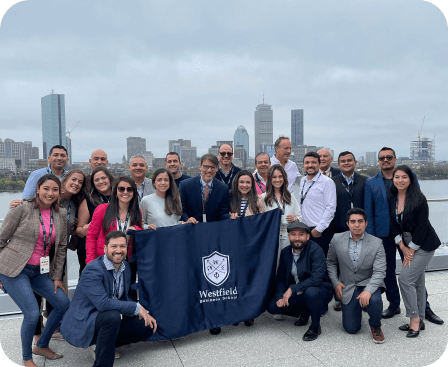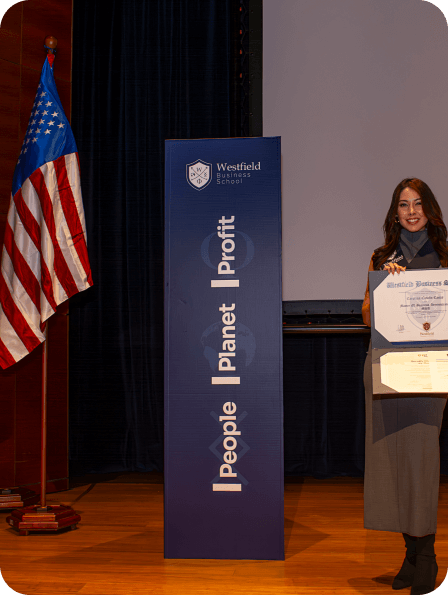Our business school's mission is to awaken human potential to generate a positive impact on society. Through innovative educational programs, we seek to inspire people to dream big, foster collaboration and creativity, and provide the necessary tools to turn their purposes into reality.
We aim to train business leaders and change agents committed to the well-being of society, thus creating a community of bold individuals who will make a difference in their careers and in society as a whole. Our goal is to challenge the status quo, promote excellence, and empower people to reach new heights, contributing to a global movement of transformation that will change lives and build a better future for all.
In a world where sustainability is no longer an option but a necessity, businesses face an unavoidable challenge: generating economic value without compromising social well-being or environmental balance. This approach is known as the Triple Bottom Line, a business strategy that balances three essential pillars: People, Planet, and Profit.
At Westfield Business School, we believe that the business leaders of the future must understand and apply this model to build more responsible, competitive, and sustainable companies.
Business success is not only measured in numbers but also in the positive impact it generates in society. The People pillar emphasizes organizations’ responsibility toward their employees, customers, communities, and other stakeholders.
Climate change, resource overexploitation, and pollution are challenges that demand a radical transformation in the way businesses operate. The Planet pillar drives an approach based on environmental sustainability and the responsible use of natural resources.
Profitability remains a fundamental pillar, but in this new business era, economic growth must be achieved ethically and sustainably. The Profit pillar promotes a business vision where profitability aligns with social and environmental responsibility.
Our story begins in 2000, with the creation of the Instituto Superior de Educación, Administración y Desarrollo (ISEAD) founded by Javier Rivera Latas (PhD from Stanford University) in Madrid, Spain, who has an extensive academic and business background, alongside Víctor Ros García (Naval Engineer from the Polytechnic University of Madrid and MBA from IESE).
2000In 2009, the decision was made to create a Business School in the United States, a country known globally for its higher education and university quality, within a transparent, flexible, and demanding regulatory framework.
2009We started operations in Miami, Florida, in 2012. Student enrollment began in May, and classes started in October of the same year.
2012In 2016, the school was acquired by Prisma Education Group and the name was changed to Westfield Business School in honor of Cyrus West Field.
2016By 2024, more than 4,600 students have successfully completed Westfield Business School programs.
2024


Our story begins in 2000, with the creation of the Instituto Superior de Educación, Administración y Desarrollo (ISEAD) founded by Javier Rivera Latas (PhD from Stanford University) in Madrid, Spain, who has an extensive academic and business background, alongside Víctor Ros García (Naval Engineer from the Polytechnic University of Madrid and MBA from IESE).
2000In 2009, the decision was made to create a Business School in the United States, a country known globally for its higher education and university quality, within a transparent, flexible, and demanding regulatory framework.
2009We started operations in Miami, Florida, in 2012. Student enrollment began in May, and classes started in October of the same year.
2012In 2016, the school was acquired by Prisma Education Group and the name was changed to Westfield Business School in honor of Cyrus West Field.
2016By 2024, more than 4,600 students have successfully completed Westfield Business School programs.
2024

